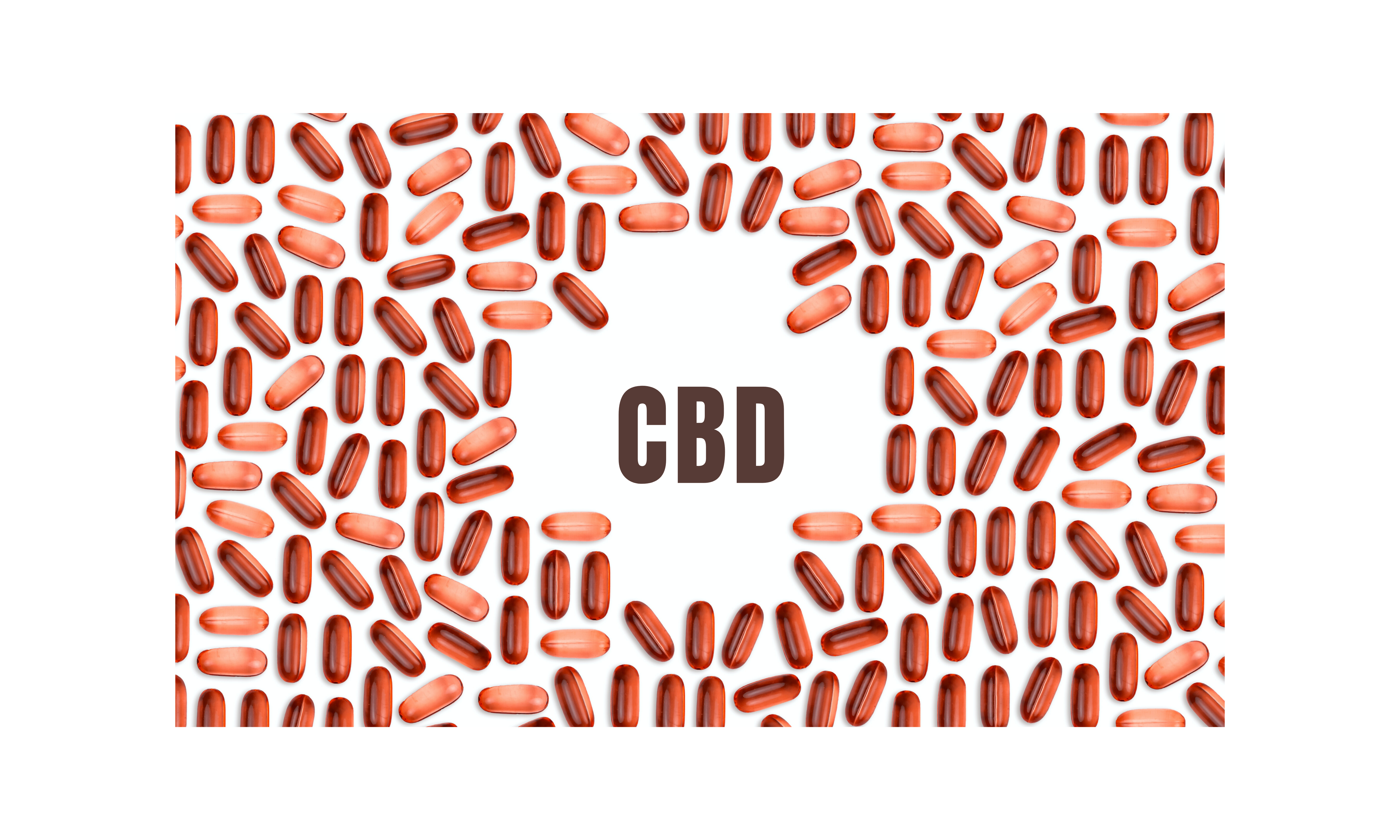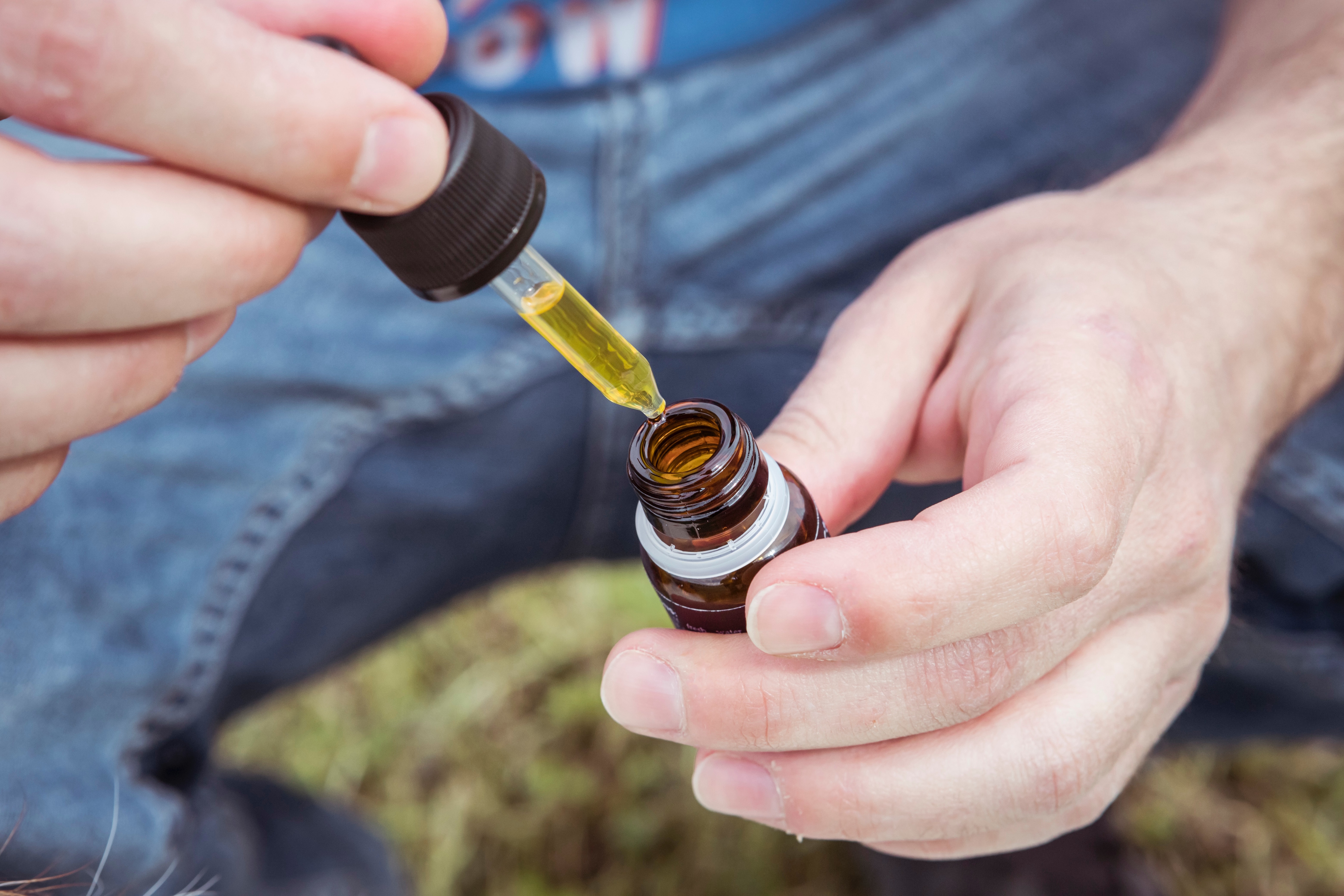You’ve just learned of the amazing therapeutic benefits of Cannabidiol, otherwise known as CBD, and you’re ready to try it for yourself. So you begin the search and suddenly you’re overwhelmed with an assortment of CBD products. While you know that CBD vapes, gummies, and topicals are great and widely available, you’re only interested in the most popular CBD products on the market today: CBD capsules and CBD oils.
The question then becomes, which is better: CBD oil or CBD capsules? In this article we’ll explore the pros and cons of CBD oils versus CBD capsules, and how to really determine which form will best meet the needs of your lifestyle and potentially help with health issues.
But before we begin, let’s recap on what CBD is.
A quick refresher: What is CBD?
First and foremost, hemp belongs to the Cannabis Sativa family, and CBD is the second most abundant phyto-cannabinoid found in the hemp plant. Tetrahydrocannabinol (THC) is the first most abundant and is infamously known for its psychoactive effects (the feeling of being “high”). While CBD’s origin may seem alarming, it is in fact a safe medicinal substance that will not make you feel “high”.
Amazingly, in the last few years, hemp-derived CBD has become quite popular for its anti-inflammatory and soothing properties. In fact, studies show that CBD helps to reduce seizures in children, ease anxiety and stress in both humans and animals, and address inflammation from a completely unique angle. Long story short, CBD has become a well praised supplement and is considered one of the most talked about medicinal substances in the world today.
As a result, thousands of CBD companies have popped up around the world selling an array of CBD products. But there are two CBD products that have received the most attention: CBD capsules and CBD oil. While most consumers know of CBD oil, the CBD capsules have been growing in popularity as well. That said, it can be confusing for many CBD newcomers to determine the differences between CBD oil and CBD capsules, let alone which one would best fit their health needs.
So what are differences between CBD oil and CBD capsules and how do you know which one is best for you?
What is CBD oil?
The process of developing CBD oil is quite tedious, but simple and straightforward. CBD is first slowly and carefully extracted from the hemp plant. Then, along with other phytonutrients, it is diluted into a healthy carrier oil like hemp seed, coconut, or avocado oil.
CBD oil is considered a sublingual supplement, meaning you hold the CBD oil under the tongue for 60-90 seconds at a time. The strength and the amount of CBD oil you take will determine how quickly you will feel its effects. For the most part, CBD companies recommend supplementing with no more than 0.25 milligrams of CBD oil at a time. Nevertheless, what makes CBD oil so popular is the bioavailability of its sublingual administration.
What does this all mean? Well, when CBD oil is held under the tongue, it’s absorbed directly through the mucous membranes of the mouth. This means CBD oil bypasses the metabolism and enters straight into the bloodstream. After 60-90 seconds, the CBD oil is then swallowed. While a small portion of the swallowed CBD oil does enter the digestive tract, sublingual administration offers the highest bioavailability and is by far the most popular form of CBD consumption.
Still, there are pros and cons of CBD oil.
Pros of CBD oil:
- Bioavailability – While a small portion of the swallowed CBD oil does enter the digestive tract, sublingual administration offers the highest bioavailability and is by far the most popular form of CBD consumption.
- Administration – The bottles of CBD oil come with an easy to use dropper that is usually measured in milligrams. This allows users to tailor the amount of CBD they consume to address their personal needs and wants.
- Variety – From strength to flavors, there’s an array of CBD oils available on the market today. This allows consumers to have the option on which CBD oil will best fit their lifestyle and taste.
- Natural – Aside from the hemp flower, CBD oil is considered the second most natural and raw way to consume CBD.
- Versatility – CBD oil can be added to smoothies, baked goods, salad dressings, and an assortment of beverages. This allows users to easily consume CBD in a number of different ways.
- Benefits – Amazingly, the secondary phytonutrient ingredients in CBD oil offer various therapeutic benefits to the body. This means users who are in need of a good night’s sleep or relief from pain may benefit from the terpenes found in full spectrum and broad spectrum CBD oil.
Cons of CBD oil:
- Taste – To avoid unwanted ingredients and lack of strength, regular CBD oil is often the best way to get fully natural CBD. However, without certain flavors and ingredients, the flavor of CBD is pretty raw and bitter. This can be hard for those who have sensitive taste buds or gag reflexes to consume it on a regular basis; unless of course they add CBD oil to something that can help dilute the taste. Even then, the bioavailability will go way down as it will have to enter the digestive tract.
- Convenience – Unfortunately, carrying a bottle of CBD oil can be pretty noticeable and risky. This makes it harder for users to consume CBD whenever they need to calm down or address unwanted symptoms when they’re out in public, because a bottle of CBD oil isn’t very discreet. Not to mention, you assume the risk of having CBD oil spill into your bag, purse, or pocket when traveling.
- Dosage – While the dropper that comes with most CBD oils makes it easy to administer the dosage, it can be hard to remember and determine how much CBD oil you should take at a time.
- Interactions – The small amount of CBD oil that is swallowed must be metabolized, and then filtered using the same liver enzymes as other prescription drugs, causing it to interfere with the strength and the duration of prescription medications. Always consult with a doctor before you consume CBD oil.
Now let’s look at CBD capsules.

What are CBD capsules?
For the most part, CBD capsules are formulated with traditional CBD oil extract, but they can also be formulated using plain CBD isolate, which is considered the purest form of CBD. When creating CBD isolate, formulators will remove all active compounds found in the hemp plant except for CBD. This leaves either a powdery or crystallized form of CBD.
Like oil, CBD capsules are also taken orally. However, unlike oil, there’s a huge difference in how your body processes them. For example, when a CBD capsule is taken orally, it first enters the digestive tract. From there, it is metabolized and then filtered through the liver. Unfortunately, because of this process, CBD capsules don’t provide the same bioavailability as CBD oil. This is because a lot gets lost in the digestive tract before it can finally enter into the bloodstream. But that’s not to say there aren’t pros to CBD capsules.
Pros of CBD capsules:
- Convenience – One of the most popular reasons consumers choose CBD capsules over oil is for their convenience. Unlike oil, CBD capsules are very discrete, especially if you plan to be out in public. If you happen to feel pain or need to calm down, popping a couple of CBD capsules is far less noticeable than administering a dropper full of CBD oil. Additionally, CBD capsules are great for travel, as they’re less messy and super easy to transport.
- Taste – What makes CBD capsules so appealing is they offer zero taste. Users can avoid the raw bitter flavors that natural CBD oil usually offer, by simply swallowing capsules filled with the therapeutic properties of CBD.
- Dosage – Unlike oil, CBD capsules are already pre-dosed. This means users don’t have to measure how much CBD they need through a dropper each time they consume it.
- Purity – CBD capsules that are formulated with isolate are considered 99.9% pure CBD. This means users that are sensitive to ingredients like terpenes or other cannabinoids can rest assured that CBD isolate capsules are completely safe for them to consume.
- Variety – There are capsules that are filled with either full spectrum or broad spectrum CBD to meet the various needs of those interested in CBD capsules.
Cons of CBD capsules:
- Bioavailability – Unfortunately, CBD capsules must first go through the digestive tract before they can enter into the bloodstream. This means users will lose some of the potency of their capsules before they begin to take effect in their body — thus making capsules less bioavailable than CBD oil.
- Value – Because CBD capsules get broken down within the digestive tract, some of the potency gets broken down as well. This leads to consuming and purchasing more CBD capsules on a regular basis.
- Interactions – When you combine any form of oral CBD, it may interact with a number of pharmaceutical drugs. This means the biggest downside to CBD capsules is that once they enter the digestive tract, they must then be filtered through the same liver enzymes as most prescription medications. This can possibly cause negative interactions with pharmaceuticals, so always consult with a doctor before you consume CBD capsules.
- Swallowing – Those who struggle with taking pills may not enjoy taking CBD capsules. While they’re not the largest oral capsules, they aren’t the smallest either. Always have enough liquid on hand to help you swallow any type of pill/capsule.
- Time – Again, CBD capsules must first be metabolized before they can enter the bloodstream. The speed of your metabolism will determine how quickly you’ll feel the effects of CBD capsules.
Now that we understand the pros and cons of CBD oil and capsules, we can decide which form will best suit our needs.

Which is better: CBD capsules or oil? And how to choose?
It all boils down to your personal preference, lifestyle, and needs when deciding between CBD capsules vs. CBD oil. It’s no doubt that CBD oil is much more bioavailable, meaning it enters the bloodstream much faster, with only trace amounts entering the digestive tract. So the potency of CBD oil will remain much higher than CBD capsules. However, if you’re looking for convenience, zero flavor, and texture, CBD capsules are definitely the better option.
Just be sure before you purchase any form of CBD that you diligently seek out well established CBD companies that focus on high quality ingredients and transparency.
Where to buy CBD capsules and CBD oil?
It’s no surprise that CBD companies have popped up all over the world. But beware of smoke shops that display signs like, “CBD Now Sold Here.” Why? Unless you’re in a stand-alone CBD shop that specializes in one or even a small handful of CBD, it can be hard to learn what each brand is truly all about. This doesn’t mean shopping for CBD in your nearest city is a bad thing. It just helps to know more about the CBD company you're planning to buy from. And that usually takes some online investigation. In fact, one of the best places to purchase CBD oil and CBD capsules is online. Nevertheless, it’s important to know that no two companies will have the same formulated CBD products. But before purchasing any form of CBD, you must research the brand/company.
3 things to look for when researching a CBD brand/company:
- Ingredients – Are the products made with high quality ingredients, preferably organic?
- Testing – Are the products thoroughly tested by independent third parties to ensure safety, quality, and accuracy?
- Dosage – Does each bottle of CBD oil or packet of CBD capsules display a recommended amount users should take at a time?
These questions will help you determine which CBD brand will work best for you and how often you should take their product. In short, the smallest difference between CBD oil and CBD capsules could make all the difference in your decision making. Just be sure to consult with your doctor if you are on any prescription medications and always research the CBD brand you’re interested in before purchasing.



